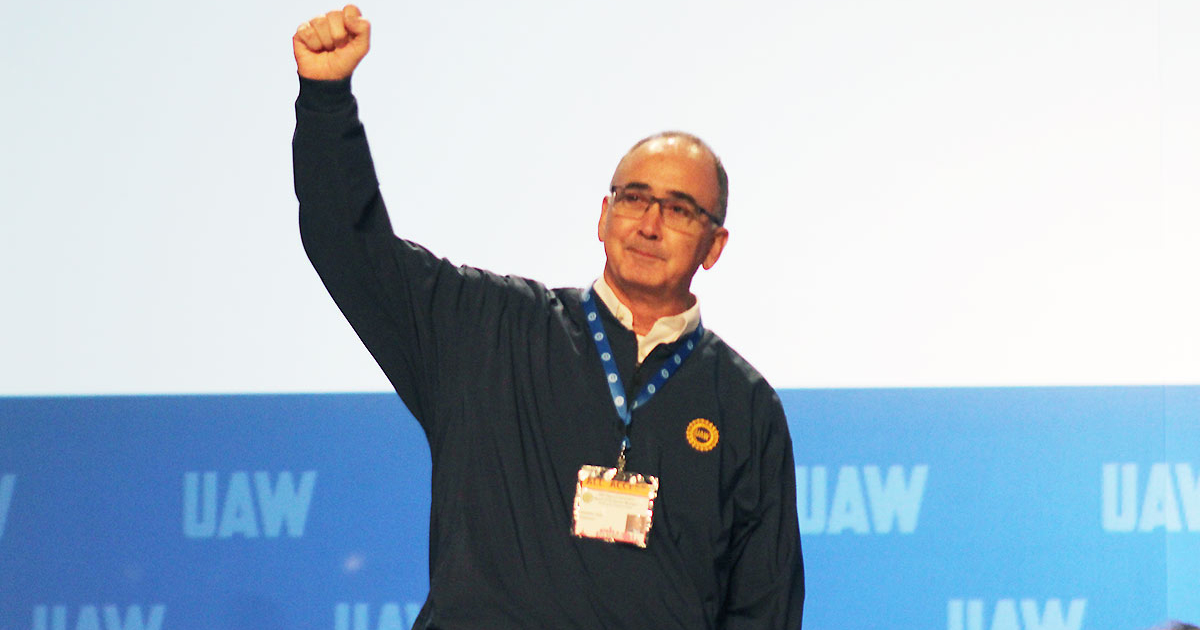
UAW leaders on Wednesday delivered a clear message to members: The union has high demands for this upcoming round of contract negotiations with the Detroit 3 and are prepared to strike if the companies don’t meet them.
In a first-of-its-kind virtual town hall, UAW President Shawn Fain, Secretary-Treasurer Margaret Mock and the union’s three vice presidents laid out priorities that include ending the tiered wage system, reinstating cost-of-living increases and adding stronger job protections to prevent future plant closures. They said Ford Motor Co., General Motors and Stellantis have made enough profits in recent years to no longer need concessions from their work forces.
“They can afford our demands, and we expect them to pony up,” Fain said. “This is our time to get our fair share of the pie.”
The leaders struck a defiant tone at times, using charts and graphics to contrast corporate profits with union wages. Fain said the Detroit 3 have made so much money over the past decade that they could collectively use those profits to purchase every pro baseball, basketball and hockey team and still have billions left over.
Vice President Rich Boyer, head of the Stellantis department, blasted CEOs Mary Barra of GM, Jim Farley of Ford and Carlos Tavares of Stellantis for their high compensation relative to the average worker’s wages.
“Remember that when they say we’re family,” Boyer said. “We’re not family.”
The upcoming round of negotiations are expected to be difficult and contentious, as the union fights for better wages and benefits while the automakers attempt to keep costs under control. Union leaders, most of whom are newly elected and have not shied away from divisive rhetoric, said Wednesday they weren’t afraid of going on strike. The automakers’ contracts with the UAW expire in September.
“The choice of whether or not we go on strike is up to the Big 3,” Mock said. “The companies know what our members deserve, and they can afford to give it to us. They can work with us to make sure we get what we are owed, or they can fight us and we will be forced to take action.”
The union has about $825 million in its strike fund, Mock said. Officials recently raised strike pay to $500 per week.
Wednesday’s town hall included a question-and-answer segment and followed an apperance by Fain on Facebook Live last week. It’s part of a coordinated effort by union leaders to get rank-and-file members on the same page to build awareness ahead of the contract talks.
The union in the past has failed to properly utilize social media, although Fain promised frequent updates both before and during the talks.
“We’re going to do things differently this round of negotiations,” Fain said. “This fight’s not going to be won by [leadership]. This fight’s going to be won because our members are informed, our members are organized and they’re united.”